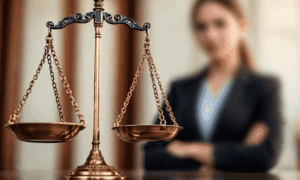The effects of an accident that’s not your fault can be damaging, costly, and even life-threatening in worst-case scenarios. Personal injury claims can give you the compensation you need to recover from them, whether to cover medical expenses or lost income.
Following the steps we explore in this article can improve your possibility of a successful claim.
Gather Evidence at the Scene
When pursuing a personal injury claim, you’ll need evidence that makes the process easier for you and helps you win fair compensation. Take videos and photos from multiple angles of the accident scene and any visible injuries you’ve suffered.
If it was a traffic accident, you should also collect witness statements and note any potentially relevant details, like road conditions or signage. Tell your doctor or nurse about every body part that hurts because you may discover that an injury that appears to be minor is more serious.
All of the evidence you collect may be used to prove that the other party was at fault for the accident, demonstrate how it has affected your life, and quantify your financial losses. More substantial evidence will lead to a more compelling case with a quicker and more favourable resolution.
Understand the Legal Basis for Fault
The legal basis for fault in a personal injury claim boils down to whether the other party was negligent or broke the law. To establish fault, you must be able to prove they failed to follow the law or use reasonable care.
This involves establishing that the other party owed you a legal duty of care, whether they were another driver on the road or your employer, for example. They must have breached that duty, which is judged by comparing their actions to what a reasonable person would have done in similar circumstances. The breach must have directly caused your injury and caused actual harm or loss, like emotional distress and physical injury.
Consult an Expert to Strengthen Your Case
An expert witness will help your case. They provide impartial, expert opinions on medical and technical issues within their field of qualification to help the court should your case proceed to trial.
The expert witness in your trial will likely be a medical expert. Medical evidence will enable the court to diagnose the injuries caused by the accident and the extent of the damage they caused. Non-medical experts can provide other evidence about liability issues and non-medical losses.
Your case could involve an accident reconstruction specialist who will determine the events leading up to the accident and its contributing factors.
Use Accident Claims to Support Your Case
If you want to take legal action to claim compensation after the accident, you’ll need advice from specialist personal injury solicitors. They will help to evaluate your claim and gather the necessary evidence.
Working with these specialists can put you on the right path and increase your chance of receiving fair compensation, but you’ll have to take legal action, issuing court proceedings within three years of your injury.



































